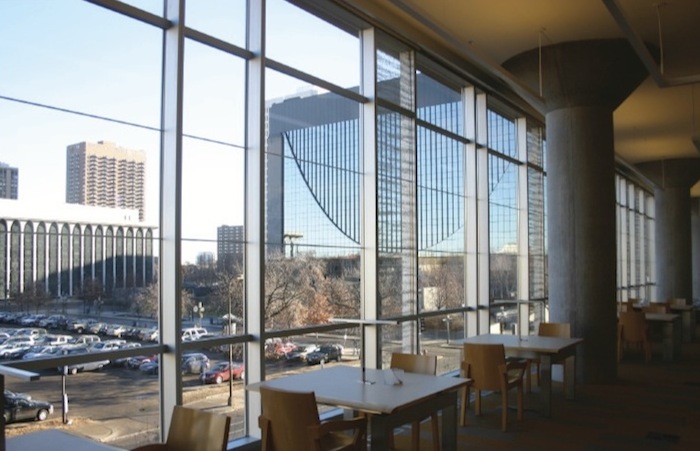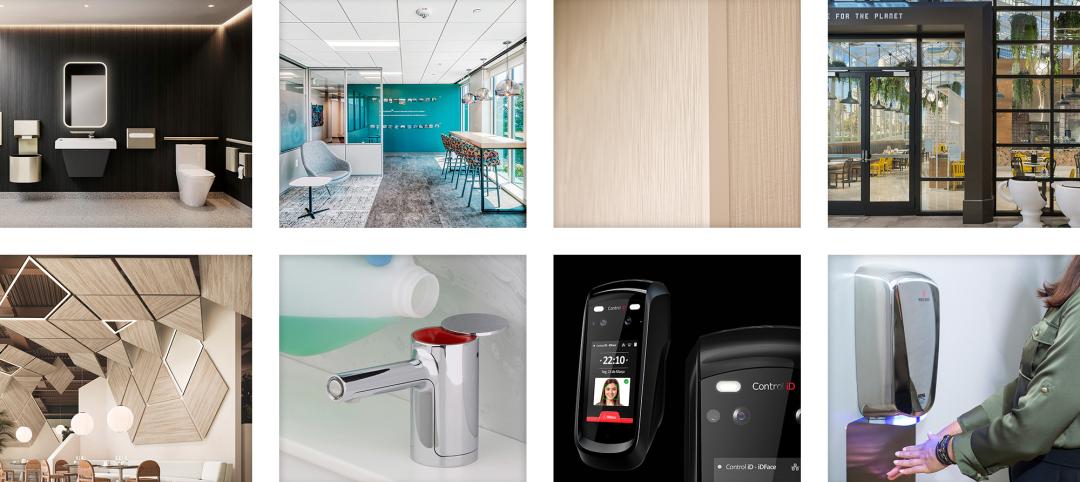Analysis of daylighting control systems in 20 office and public spaces in Minnesota and Wisconsin shows that while the automatic daylight harvesting schemes are helping to reduce lighting energy in the buildings, most are not achieving optimal performance, according to a new study by the Energy Center of Wisconsin (ECW).
According to ECW, the median daylighting control system studied was saving 23% of lighting energy, including impacts on heating and cooling. This translated to 915 kWh saved for every kW of lighting controlled. But the average effectiveness (the energy saved versus energy saved with ideal control) of the controls was only 51%. This meant that almost half of the potential savings from these controls was not captured due to imperfect controls operation. Even worse, four of the 20 spaces studied had zero savings.
The low level of effectiveness, says ECW, is evidence of a lack of controls execution. The findings show that successful implementation of automatic daylighting control requires a significant commissioning effort to reach full energy-savings potential.
Read the full daylighting commissioning report from the Energy Center of Wisconsin.
As part of the report, ECW developed a tip sheet on commissioning and calibration and function testing of lighting controls. Recommendations include assigning a single person of the construction team to be responsible for verifying completion of all steps in the daylighting commissioning process, and proper training of the building owner/operator on the controls equipment and systems. Download the tip sheet (PDF)
(http://www.ecw.org/project.php?workid=1&resultid=494)
Related Stories
AEC Tech Innovation | Jul 4, 2024
Caution competes with inevitability at conference exploring artificial intelligence for design and construction
Hosted by PSMJ, AEC Innovate in Boston found an AEC industry anxiously at the threshold of change.
Building Team | Jul 3, 2024
So you want to get published: What’s next?
In the AEC industry, securing media attention is no longer a niche endeavor but an essential component of a holistic marketing strategy.
Laboratories | Jul 3, 2024
New science, old buildings: Renovating for efficiency, flexibility, and connection
What does the research space of the future look like? And can it be housed in older buildings—or does it require new construction?
MFPRO+ New Projects | Jul 2, 2024
Miami residential condo tower provides a deeded office unit for every buyer
A new Miami residential condo office tower sweetens the deal for buyers by providing an individual, deeded and furnished office with each condo unit purchased. One Twenty Brickell Residences, a 34-story, 240-unit tower, also offers more than 60,000 sf of exclusive residential amenities.
Student Housing | Jul 1, 2024
Two-tower luxury senior living community features wellness and biophilic elements
A new, two-building, 27-story senior living community in Tysons, Va., emphasizes wellness and biophilic design elements. The Mather, a luxury community for adults aged 62 and older, is situated on a small site surrounded by high-rises.
Office Buildings | Jul 1, 2024
Mastering office layouts: 5 primary models for maximum efficiency and productivity
When laying out an office, there are many factors to consider. It’s important to maximize the space, but it’s equally important to make sure the design allows employees to work efficiently.
Smart Buildings | Jul 1, 2024
GSA to invest $80 million on smart building technologies at federal properties
The U.S. General Services Administration (GSA) will invest $80 million from the Inflation Reduction Act (IRA) into smart building technologies within 560 federal buildings. GSA intends to enhance operations through granular controls, expand available reporting with more advanced metering sources, and optimize the operator experience.
Sustainability | Jul 1, 2024
Amazon, JPMorgan Chase among companies collaborating with ILFI to advance carbon verification
Four companies (Amazon, JPMorgan Chase, JLL, and Prologis) are working with the International Living Future Institute to support development of new versions of Zero Carbon Certification.
K-12 Schools | Jul 1, 2024
New guidelines for securing schools and community spaces released by the Door Security and Safety Foundation
The Door Security and Safety Foundation (DSSF), in collaboration with Door and Hardware Institute (DHI), recently released of “Are Your Door Openings Secure?.” The document provides guidelines to equip school administrators, building management personnel, and community leaders with a clear roadmap to create a secure and safe environment.
Products and Materials | Jun 30, 2024
Top products from AIA 2024
This month, Building Design+Construction editors are bringing you the top products displayed at the 2024 AIA Conference on Architecture & Design. Nearly 550 building product manufacturers showcased their products—here are 17 that caught our eye.

















